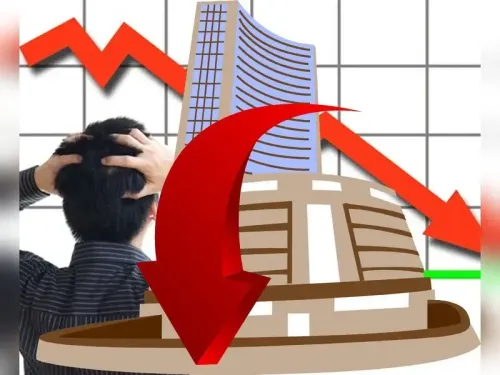RBI's Decision to Cut Rates Praised, Will Stimulate Spending

Synopsis
Key Takeaways
- RBI cuts repo rate by 25 basis points to 6%
- Experts predict boost to domestic consumption
- Impact of rate cut may take 2-3 quarters to show
- Global trade tensions pose risks to the economy
- GDP forecast for FY26 downgraded to 6.5%
Mumbai, April 9 (NationPress) The Reserve Bank of India (RBI) has made a significant move by lowering the repo rate by 25 basis points to 6 percent, a decision widely regarded as timely and commendable, according to an expert speaking on Wednesday.
This action by the central bank aims to rejuvenate domestic consumption, as it is expected to encourage spending, stated stock market analyst Sunil Shah in an interview with IANS.
Shah remarked that the RBI's initiative is indeed commendable. He noted that prior to this, the government had extended relief through the Budget and provided income tax concessions, thereby increasing the disposable income available to the public.
“With the RBI's recent rate cut, it bolsters the efforts to enhance consumption. There had been worries about sluggish demand before January, but this decision will likely stimulate spending,” Shah conveyed to IANS.
However, he cautioned against expecting immediate results. “The impact of this rate cut won't be felt instantly,” he noted.
“We may not observe any signs of recovery in consumption for two to three quarters. Eventually, increased spending will benefit the economy and contribute to GDP growth,” he added.
He also touched upon the larger global economic landscape, particularly the apprehensions surrounding a potential trade conflict initiated by US President Donald Trump through his tariff policies.
“Trump has long been vocal about tariffs, and his recent actions caused a stir in global stock markets. Although Indian markets fell, the decline was less severe than other markets,” he stated.
Shah remarked, “Markets experienced a brief recovery on Tuesday, buoyed by strong openings in European and US markets. Nevertheless, with the US imposing further tariffs on China, concerns of a full-scale trade war resurfaced.”
He emphasized that trade wars are detrimental to all parties involved. “There are no victors in a trade war. If tensions escalate, it could elevate inflation in the US, adversely affecting consumer spending and diminishing demand,” he warned.
If inflation takes hold in the largest economy in the world, the repercussions could extend to the global economy, he cautioned.
The central bank has also revised its GDP forecast for FY26 down to 6.5 percent, reduced from the previous estimate of 6.7 percent, highlighting risks stemming from global tariff increases and weakened investor sentiment.










